
THE VOICE OF INTERNATIONAL LITHUANIA
|
VilNews has its own Google archive! Type a word in the above search box to find any article.
You can also follow us on Facebook. We have two different pages. Click to open and join.
|
Archive for 2011
- Posted by - (0) Comment

- Bookmark :
- Digg
- del.icio.us
- Stumbleupon
- Redit it
- Posted by - (0) Comment
Lithuanian President Dalia Grybauskaitė at the European Council meeting this weekend:
Stabilization of the EU economy will be possible only if financial populism is refused

French-Lithuanian happiness in Brussels this weekend. Dalia Grybauskaitė and Nicolas Sarkozy.
Sunday, October 23, Brussels - The heads of state or government of the European Union countries, gathered in the capital of Belgium, discussed the EU economy revival and finance stabilization measures and debated how to solve the issues relevant for the euro zone.
According to the President, the European Union has all the necessary measures to cope with the existing economic hardships - the member states should only find the political will to implement such measures.
"Only responsible financial policy and compliance with strict fiscal discipline as well as promotion of mutual economic cooperation will enable the European Union to ensure a sustainable economic growth and avoid financial populism," Dalia Grybauskaitė said at the European Council meeting.
Read more:
www.president.lt
- Bookmark :
- Digg
- del.icio.us
- Stumbleupon
- Redit it
- Posted by - (0) Comment
Nicolas Sarkozy to David Cameron in Brussels this weekend:
"We are sick of you criticising us and telling us what to do. You say you hate the euro and now you want to interfere in our meetings."

David Cameron of Britain and Nicolas Sarkozy of France have had a furious bust-up in EU-27 summit, with the French president expressing rage at the constant criticism and lectures from UK ministers, reported “The Guardian”.
Sarkozy bluntly told Cameron: "You have lost a good opportunity to shut up." He added: "We are sick of you criticising us and telling us what to do. You say you hate the euro and now you want to interfere in our meetings."
- Bookmark :
- Digg
- del.icio.us
- Stumbleupon
- Redit it
![]()

Michael Campbell was secretly recorded trying to buy weapons for a terror group and arrested in sting operation.
MI5 shows Michael Campbell inspecting weapons and negotiating a deal with a police agent posing as an international arms dealer. Link to this video
A suspected member of the Real IRA who was arrested in an elaborate MI5 sting operation has been found guilty of attempting to buy a cache of arms and explosives designed to equip the dissident terror group for a bombing campaign.
Michael Campbell was jailed for 12 years by a judge in Lithuania who had seen secretly-recorded videos of the 39-year-old negotiating to buy weapons unaware that he had been set up by the UK intelligence agency, working alongside Lithuanian authorities.
The court was told Campbell paid up to €10,000 (£8,700) for the cache, which included rocket-propelled grenades, detonators, a high-powered sniper rifle and 12kg of Russian-made explosives.
Read more:
http://www.guardian.co.uk/uk/2011/oct/21/real-ira-jail-lithuania-sting?newsfeed=true
- Bookmark :
- Digg
- del.icio.us
- Stumbleupon
- Redit it
World economy collapse explained in 3 minutes
- Posted by - (0) Comment
"If the American people ever allow private banks to control the issue of their currency, first by inflation, then by deflation, the banks and corporations that will grow up around them will deprive the people of all property until their children wake up homeless on the continent their Fathers conquered...
I believe that banking institutions are more dangerous to our liberties than standing armies... The issuing power should be taken from the banks and restored to the people, to whom it properly belongs."
- Thomas Jefferson (1743-1826).
- Bookmark :
- Digg
- del.icio.us
- Stumbleupon
- Redit it
How human psychology drives the economy
- Posted by - (0) Comment
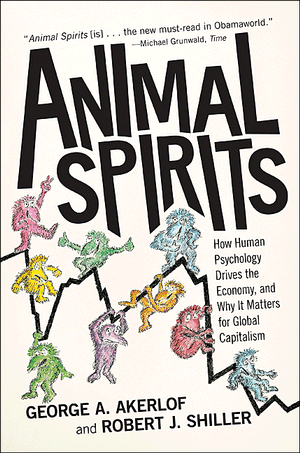
A Review of: George A. Akerlof and Robert J. Shiller, Animal Spirits: How Human Psychology Drives the Economy and Why It Matters for Global Capitalism. Princeton: Princeton University Press, 2009. xiv+230 pages.
By Val Samonis
In over 30 years of my research, advising, and teaching globally, I have read and reviewed many very interesting and paradigm-changing books in economics and management. However, this book is one of a kind!
- Bookmark :
- Digg
- del.icio.us
- Stumbleupon
- Redit it
How human psychology drives the economy
- Posted by - (1) Comment

A Review of: George A. Akerlof and Robert J. Shiller, Animal Spirits: How Human Psychology Drives the Economy and Why It Matters for Global Capitalism. Princeton: Princeton University Press, 2009. xiv+230 pages.
By Val Samonis
In over 30 years of my research, advising, and teaching globally, I have read and reviewed many very interesting and paradigm-changing books in economics and management. However, this book is one of a kind!
The book is nothing short of a revolution in how we think about economics and the real (global) economy in general. While the standard economic theory, rooted in the Adam Smith classical work, sprung up mainly from two abstract, simplified, and rather static ideas of Rational Expectations (RE) and Efficient Market Hypothesis (EMH), the powerful source of the Akerlof & Shiller story is the living and changing organism of the increasingly global economy; the Authors concentrate on the macroeconomic aspects, especially as they apply to the Great Recession started in 2008.
Critical to the analysis is the observation that RE and EMH approaches utterly fail to explain the great majority of the economic phenomena, incl. the current Great Recession in the US and globally; this sweeping assertion is not even controversial in early 2011. The reason it is so is that these standard economic theory approaches completely fail to account for the operation of “animal spirits”, a term dating back to John M. Keynes. Animal spirits are our interpretations of economics and the economy, our mental/psychological forces and constructs, spiritus animalis from the original Latin. They include: (non)confidence (with its Keynesian style multipliers), the issue of fairness in wage determination and other areas, corruption and bad faith phenomena in the society, money illusion that people usually operate under, and stories that are our practical and simplified ways of thinking about the economy and economics.
The answers to the eight basic questions in economics crucially depend on the animal spirits: Why do depressions occur? Why do central banks have real powers? Why do we have involuntary unemployment? Why is there a long-run tradeoff between inflation and unemployment? Why is saving so variable? Why do stock markets fluctuate so wildly? Why are the cycles in the housing market so large? And why is there continued minority poverty?
Very importantly, the book highlights frames of modern government roles in strategic management of the animal spirits for the benefit of our knowledge and our economy.
Even if (as some would claim) animal spirits cannot be modeled yet to produce empirically relevant outcomes (qualitative, quantitative, combined, etc) on the individual level or the aggregate level, it is probably only a question of a relatively short time before we can do so using new frontier research like neuronomics, business ethics, knowledge management, etc, to extend our knowledge.
The book is a great and compelling proposal for a new economic thinking, and a very practical one at that. Two years ago I adopted Akerlof & Shiller as the textbook for my MBA and Executive MBA teachings, incl. online teachings. My students (mostly adult professionals) provided lots of un-trivial opinions on how I was able to enthusiastically teach this new economic thinking and practically frame the animal spirits analysis for actionable understanding of the 21st century global economy.
The Akerlof & Shiller book is best used as the text for economic principles and/or related graduate level courses. I look forward to the second edition of this book; and an online teaching companion would be very useful for students and teachers alike.
Very powerful story, one of a kind indeed!
Val Samonis
Institute for New Economic Thinking, New York City
and SEMI Online, Toronto
- Bookmark :
- Digg
- del.icio.us
- Stumbleupon
- Redit it
- Posted by - (0) Comment
“I’d like 6 kilograms of
innovation, please”
Ojasaar Yrjö, representative of Solon partners Ltd., Estonia,
at this year’s Baltic Dynamics Conference.
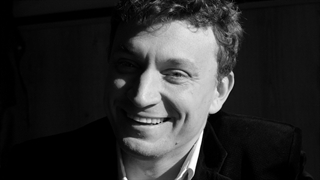
Ojasaar Yrjö
Text: Evelina Kutkaitytė
Last month the annual Baltic Dynamics conference invited innovation supporters from around the Baltic Sea to Tallinn, Estonia.
Estonia’s president, Toomas Hendrik Ilves, opened the conference emphasising the importance of Baltic cooperation. “The Baltic States make huge impact to EU economy as well as help withstanding the business competition with the bigs like China”, said the Estonian president, who also is the initiator of EU’s Baltic Sea strategy.
According to the president, the findings of Baltic Dynamics conference should be presented to the Baltic governments. The bureaucracy level in Estonia makes it almost 3 years to get business support from the state thus the companies prefer working on their own. Similar conditions are observed in Latvia and Lithuania.
Despite all independent efforts to survive in the market, today‘s businesses show lack of knowledge and creativity. Why Apple was so successful? Because it combined technology and design.
- Bookmark :
- Digg
- del.icio.us
- Stumbleupon
- Redit it
- Posted by - (1) Comment
“I’d like 6 kilograms of
innovation, please”
Ojasaar Yrjö, representative of Solon partners Ltd., Estonia,
at this year’s Baltic Dynamics Conference.

Ojasaar Yrjö
Text: Evelina Kutkaitytė
Last month the annual Baltic Dynamics conference invited innovation supporters from around the Baltic Sea to Tallinn, Estonia.
Estonia’s president, Toomas Hendrik Ilves, opened the conference emphasising the importance of Baltic cooperation. “The Baltic States make huge impact to EU economy as well as help withstanding the business competition with the bigs like China”, said the Estonian president, who also is the initiator of EU’s Baltic Sea strategy.
According to the president, the findings of Baltic Dynamics conference should be presented to the Baltic governments. The bureaucracy level in Estonia makes it almost 3 years to get business support from the state thus the companies prefer working on their own. Similar conditions are observed in Latvia and Lithuania.
Despite all independent efforts to survive in the market, today‘s businesses show lack of knowledge and creativity. Why Apple was so successful? Because it combined technology and design. In our universities technology, design and arts are still taught separately. If we observe and compare people involved in innovation support and creative industries, we will notice their language and understanding of environment are quite different. The first ones talk about clusters and valleys, and the others – about garages and camps.
At the conference, six creative Baltic incubators were presented.
Tallinn creative incubator is one of three incubators of in Estonia, with 47% of the country’s creative enterprises as participants. Standing out for its orientation to business rather than to traditional industries, the Tallinn creative incubator was awarded as the second best creative incubator in the world last year.
Riga creative industry incubator is the only creative incubator in Latvia, established in 2010. The aim of the incubator is to be a one-stop-shop providing all creative services in one place. Riga creative industry incubator is responsible for distributing 2 million Euros for start-up companies and providing business support for at least 100 companies in 5 years.
The role of creative business incubators in the regeneration of city regions was presented with a quote of the famous sculptor Constantin Brancusi – “to see far is one thing, to go there – another”.
Liverpool stopped being sorry for itself
Basecap3TM is an award-winning business community in Liverpool (UK) supporting creative industries. It provides a modern environment where new start-ups and early stage development companies can access quality business support, engage with likeminded entrepreneurs and improve their chances of starting and maintaining a business. “The incubator made the city alive and Liverpool stopped being sorry for itself” claimed the presenter Roy Jones. “Creative industries are full of SMEs which are the key of all economies” – added R. Jones reasoning why helping creative SMEs is necessary for the economy.
2800% growth
Arabus business incubator at Aalto start-up centre (Finland) aims at promoting entrepreneurship in the field of creative sector and industries. Their success stories include companies demonstrating growth of 2800% like Footbalance and Futurice as well as Microsoft award winners GWEB and Sopima.
In the USA an average 11% of industries grow on venture capital, 25% of GDP and 80% of jobs are created by companies with venture capital investments. When Angry Birds, a video game developed by a Finish company, got so successful, many more investors came to Finland to check whether there was something more happening.
The problem is you cannot order innovation and success in advance
“I’d like 6 kilograms of innovation, please” – laughs Ojasaar Yrjö, representative of Solon partners Ltd. In Estonia. On the way to innovations there is always a valley of death – a period of time when companies and business starters need support and few are interested in investing. In many countries state comes to help at this stage of business development. Springboard in Finland offers 9 thousand Euros per investor you succeed to attract with your idea. Estonian development fund runs a virtual incubator Seedbooster, and Baltic Innovation Agency offers trainings to entrepreneurs on how to present your idea to a potential investor.
A venture garage
Aalto University (Finland) is running the Aalto Centre for Entrepreneurship WITH the aim of “creating engines” for new and existing companies. Collaborating with Stanford University (USA) and other partners they recently opened a Venture Garage – a co-working space for Baltic and Nordic entrepreneurs. With annual budget of 400 million Euros Aalto University employs 15 people to work with young entrepreneurs, 9 of which are exclusively involved in technology transfer. In 2010/11 there were fifteen companies established on the basis of Aalto originating ideas. Aalto University believes that entrepreneurs should be seen as heroes thus awareness building is one of the main tasks within entrepreneurship programs.
Business leading innovations are never concrete in the beginning. The good news is that there are milestones indicating if it’s worth investing more. Technology transfer process in Aalto University involves evaluation of ideas looking for anything “sunny” that might work rather than anything “cloudy” proving the idea will fail. The bright sides of ideas are sought either in business potential, feasibility to manufacture or intellectual property rights.
University roles
Professor Pasi Malinen (Finland) demonstrated his models for developing 3rd generation universities. He, like most of the speakers, marked the need of change in management and communication. “Nowadays universities try to become more innovative by creating special departments, leaving everybody else to do their old, regular work. But everyone should be involved,” said the professor.
The urge for collaboration was also expressed among Swedish start-ups. In one case, a student’s initiative resulted in the establishing of a business incubator which later evolved into a local science park:
“Young entrepreneurs at that time didn’t ask for an incubator – they simply wanted an environment for collaboration, and today Jönköping Science Park (Sweden) is offering a unique meeting place for entrepreneurs. The physical environment has no walls. Combining ideas is what makes them happen”, said managing director Therese Sjölundh. Differently from other similar institutions Jönköping Science Park has both pre-incubation and post-incubation programmes. Also, this science park focuses on business excellence rather than technology excellence. 14 employees are working mainly as business developers, evaluating about 300 business ideas per year, helping 100 of them to start, and hosting 15 companies in business incubator. Sjölundh noted that no linear development will ever lead companies to success. Thus the aim of business incubators and science parks is to help companies finding their own business model for growth.
Lithuania is losing to Estonia
According to the competitiveness index, Lithuania is in the middle of the three Baltic States, losing its former leading position to Estonia. KTU Regional Science Park (Lithuania) shared statistics proving financial benefits of innovation and business support for the State. In Lithuania there were nearly 60 Million EUR invested into infrastructure of incubators and science parks so far meanwhile companies that grow with their help pay over 6 Million EUR taxes each year.
The next Baltic Dynamics conference will take place in Lithuania, 13 – 15 of September, 2012. We kindly invite to you to join the next event of sharing ideas and best practices on business support in the Baltic’s.
- Bookmark :
- Digg
- del.icio.us
- Stumbleupon
- Redit it
- Posted by - (0) Comment
36 REASONS WHY IT’S SUCH AN EXCELLENT IDEA
TO VISIT LITHUANIA THIS AUTUMN AND WINTER
Good reasons for all seasons
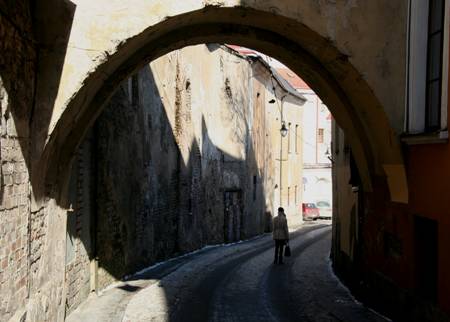
You can and should visit Lithuania for a lot of reasons this autumn and winter – as you can see from our below survey. Common for all the 36 ideas mentioned, is that here you get top quality and tons of experience – for half the price – if to compare with USA and most West-European countries.
To read more, go to Section 23 – TRAVEL LITHUANIA
- Bookmark :
- Digg
- del.icio.us
- Stumbleupon
- Redit it
- Posted by - (0) Comment
36 REASONS WHY IT’S SUCH AN EXCELLENT IDEA
TO VISIT LITHUANIA THIS AUTUMN AND WINTER
Good reasons for all seasons

You can and should visit Lithuania for a lot of reasons this autumn and winter – as you can see from our below survey. Common for all the 36 ideas mentioned, is that here you get top quality and tons of experience – for half the price – if to compare with USA and most West-European countries.
We do, however, recommend you to plan your trip thoroughly, well in advance.
If you wish, we can help you to put together the most perfect programme for your trip, and give you some hints about how to get here, where to stay, with whom to deal and much more...
If this would be of interest for you, please write us at editor@VilNews.com
|
A – NATURALLY Nature has been generous to Lithuania. There are no mountains or big forests, the country's beauty lies in the diversity of its landscape. This is a place of rolling hills and gentle plains; of quietly flowing rivers and of lakes reflecting the blueness of the sky. |
|||||||
|
|
|
|
|||||
|
B – MUST SEES Vilnius Old Town has a stunning array of Gothic, Renaissance and Baroque architecture, a truly amazing place to visit and experience. It’s also in Vilnius centre that you find the KGB Museum, a reminder of the gruesome Soviet oppression this country was forced to live with for 50 sad years. But only 30 km from the city, there is a strong medieval symbol of the 500 years of glory, when Lithuania was Europe’s largest country. |
|||||||
|
|
|
|
|||||
|
|
|
|
|||||
|
C – CULTURE Far too few people outside Lithuania know what a tremendous treasure of culture this country represents! Today Lithuanian art is not only flourishing at home but is also gaining recognition internationally. Though not every poster tells that a nightingale soprano, a graceful ballerina, or a divine cello player comes from Lithuania, the probability that you have just enjoyed a concert of a Lithuanian artist is great, being it in New York, London, Berlin, or Vilnius. |
|||||||
|
|
|
|
|||||
|
D – HEALTH & WELLBEING Many people come to Lithuania for quality health care of various kinds. Medical quality here is very high and prices for services very low... In addition the country has a number of extremely good spa and tourism resorts where visitors can undergo all kinds of treatments or simply relax and charge their batteries... |
|||||||
|
|
|
|
|||||
|
E – SPORT, OUTDOOR LIFE & PHYSICAL ACTIVITIES This year’s EuroBasket tournament took place in Lithuania (Aug-Sep). But Lithuania has also numerous other sport activities and events to offer, all year around. The Lithuanian lakes and rivers are full of fish, and the forests full of wild animals including deer, wild bears, beavers, elks and many others. One is allowed to hunt elks, wild bears, wolves, foxes, hares and birds, such as geese, ducks and woodcocks. |
|||||||
|
|
|
|
|||||
|
|
|
|
|||||
|
F - JUST FOR FUN Wondering what to do in Lithuania? We can help you stay busy, don’t worry... We can tell you about the most popular tourist attractions, beaches, outdoor/indoor activities, nightlife and much, much more... |
|||||||
|
|
|
|
|||||
|
G – WINING & DINING The natural and healthy character of its dishes is what makes Lithuanian cuisine unique. There are all kinds of restaurants in absolutely all corners of the country – international and local dining and wining from Nida to Druskininkai, from coast to inland, not to forget the big cities... |
|||||||
|
|
|
|
|||||
|
H – HOTELS, CONFERENCES Lithuanian hotels offer a large variety of accommodation options. Though the country has undergone vast economic development, it also retains ties with its nature loving, glorious pagan, countryside past. Did we mention conferences? Try Lithuania – fantastic quality, half the price! |
|||||||
|
|
|
|
|||||
|
I – TOWNS & CITIES Lithuania’s cities started to form in the 13th-14th century together with the Grand Duchy of Lithuania. The first city to receive city rights was Klaipėda (1257). Most of the cities are old, established before the 18th century. There are only 19 cities with population of more than 20.000. Cities are quite evenly spread out through the territory of Lithuania. This forms a good network to support economic development throughout the country. The distance from the capital Vilnius to the port city Klaipėda is only 300 km, with excellent 4-lane motorway. |
|||||||
|
|
|
|
|||||
|
|
|
|
|||||
- Bookmark :
- Digg
- del.icio.us
- Stumbleupon
- Redit it
- Posted by - (6) Comment
Lithuania and the Holocaust, a comment to the Didier Bertin article:
Lithuania cannot appease
both world Jewry and
far-right extremists

Olga Zabludoff
By: Olga Zabludoff
Washington, DC, USA
I commend Didier Bertin's knowledgeable and sensitive observations in his article "Lithuania and the Memory of the Holocaust." My comments here are more in the form of a PS to Mr. Bertin's words. My take-off point is his reference to the term “Double Genocide,” a government-endorsed concept that has been bandied about in Lithuanian political circles in recent times. But more about this later. Mr. Bertin borrows the term for application in a different dual context: the original genocide of the Jewish people and the current movement on the part of the Lithuanian government to neutralize if not to obliterate the remembrance of the Holocaust.
Last week I visited a photographic exhibition at the Rayburn House Office Building on Capitol Hill in Washington, DC. Sponsored by the Embassy of Lithuania, the exhibit was titled "The First Lithuanians in Texas." The introduction to the exhibit explained that because the first Lithuanian immigrants to the United States had quickly assimilated into the mainly German community in which they had settled, their contributions to the economic and cultural development of Texas have never been recognized or commemorated. These first Lithuanian immigrants to the US constituted a small group of Evangelical Lutherans from Lithuania Minor who arrived in Yorktown, De Witt County, in South Texas in 1852.
The exhibit is based on more than 30 years of archival research and will travel and has traveled extensively. The research into this ethnic group's migration has triggered the erection of historical markers by historical commissions, numerous articles in the press, archives implanted in the San Antonio Institute of Texan Cultures and the Balzekas Museum of Lithuanian Culture in Chicago -- all this to preserve the memory of, to recognize and to honor the contributions of, the first Lithuanian immigrants to the US.
That is actually very worthy and commendable. They are preserving and extolling a true history of a small segment of their ancestry. But what I find ironic is the double standard: the expression of such national pride in their legacy in the US while simultaneously often omitting the memory of a once-thriving Lithuanian-Jewish community (except in events intended as PR for Jewish, American and other Western audiences). The Litvak community existed for centuries throughout Lithuania. Its contributions to the nation's economy and culture were enormous. Yet the living remnants of that community, which include Holocaust survivors who had heroically resisted the Nazis, are currently being harassed and hounded by the Lithuanian government; while 96% of the last of the Litvak population lies mainly in mass grave sites that have melted into the landscape. In many cases the markers to these killing sites, put up thanks to Britain's Lord Janner, were placed to be invisible from the adjacent main roads.
Having said this, it would not be entirely fair and balanced if I failed to mention the various initiatives of the Lithuanian government in recent times – initiatives focused on repairing the Jewish problems they face both in their country and with world Jewry in general.
The year 2011 has been proclaimed a Holocaust Commemorative Year in Lithuania, but the goodwill inspired was sadly more than counterbalanced by the parliament's proclamation of a second commemorative year, one which in effect honors the killers, the members of the Lithuanian Activist Front and other "national heroes" who began to butcher Jewish neighbors in dozens of towns before the Germans had even arrived. It is morally incongruous to issue simultaneous years of commemoration -- one for the victims, and one for the local participants in the genocide -- and expect to have any good come of it for the country.
In early July memorial ceremonies were held at the mass grave in Ponar (Paneriai), where more than 70,000 Jews from the Vilna (Vilnius) area were murdered in the Holocaust. The following week a commemoration was held at the killing site in Plungyan (Plunge), where 1800 Jews had been murdered. Both events were attended by Lithuanian dignitaries and foreign visitors who were embarrassed and appalled to discover that the memorials at these killing sites had been freshly desecrated. The filthy anti-Semitic graffiti was quickly covered up and cleaned up, but not a single arrest has been made and all mention of the desecration was avoided. These crimes of hatred appear to go uninvestigated in any serious way. And so it is with many of the “goodwill” gestures of the Lithuanian government: what it does with one hand it undoes with the other.
One has to question also the motives of the government in what appears on the surface to be an improved attitude toward their tiny Jewish minority, toward the Holocaust in general and other issues which interest world Jewry. But Lithuania’s new politics of the Holocaust is only one step up from revisionism: They are now marketing a new concept – “Double Genocide” -- that equates the suffering and annihilation of the Jews under the Nazi regime with the pain and oppression of the Lithuanian people under the Soviet regime. In fact, they created a commission within their government to arrive at, and to export, these findings.
Cynical as it seems, I have to conclude that the motives of the government are more self-serving than soul-searching. Lithuania is out to improve its tarnished image in the world, especially as a member of the European Union. Strong nationalistic views dominate the society while their tiny Jewish population doesn’t carry much political weight.
It is a difficult balancing act, one that may not be possible. Until Lithuanian leaders realize that they cannot appease both world Jewry and far-right extremist factions simultaneously with two-track politics, their future will be as scarred as their past. I continue to live in the hope that enlightened Lithuanian people will themselves find the voice and courage to stand up proud and tall against the double-game policies of their government that are doing so much damage, and which could so rapidly be turned into constructive energy for partnership and genuine reconciliation.
|
Olga Zabludoff is an editor-writer having worked for the Macmillan Company in New York and the National Association of Educational Broadcasters in Washington, DC. She has compiled, edited and written books and articles on the Holocaust. Her parents were Lithuanian Jews. Olga has made three extensive trips to Lithuania. She lives in Washington, DC. |
- Bookmark :
- Digg
- del.icio.us
- Stumbleupon
- Redit it
Lithuanian prosecutors won’t reopen probe into CIA prison despite new evidence
- Posted by - (0) Comment
![]()

VILNIUS, Lithuania — Lithuanian prosecutors won’t reopen a probe into whether two CIA prisons built in the Baltic country held prisoners, despite new information provided by human rights organizations, they said Friday.
Human rights groups Amnesty International and Reprieve last month claimed that al-Qaida suspect Abu Zubaydah was flown on a Boeing 737 from Morocco to Lithuania in February 2005 — a flight previously unknown to Lithuanian authorities.
Officials from the organizations called on prosecutors to reopen their investigation, which they closed in January for lack of evidence.
Reprieve said that it had supplied prosecutors with names of individuals — including CIA officials, Lithuanian handlers, and eyewitnesses — who could provide testimony about the flight from Morocco.
But the General Prosecutor’s office said in a statement Friday that the new information was neither significant nor essential to the case.
- Bookmark :
- Digg
- del.icio.us
- Stumbleupon
- Redit it
- Posted by - (0) Comment
America's important
role for Lithuania

The ‘Lithuanian’ senator, Richard ‘Dick’ Durbin (67) with President Barack Obama.
Durbin is the senior United States Senator from Illinois and the Senate Majority Whip, the second highest position in the Democratic Party leadership in the Senate. Durbin was born in Illinois to an Irish-American father, William Durbin, and a Lithuanian-born mother, Ann Kutkin (Lithuanian: Ona Kutkaitė). Durbin has over many years done a truly great job not only for America but also for his motherland, Lithuania!
Text: Aage Myhre, Editor-in-Chief
aage.myhre@VilNews.com
During a visit to the U.S. some years ago I spoke with immigrants from various countries who now live in the United States. All with one thing in common; that they had abandoned their homelands. I met exiled Cubans. I saw Iranians who fled to USA after their Shah, Mohammad Reza Shah Pahlavi, was overthrown from the Persian Peacock Throne in 1979. I talked to many Eastern Europeans who escaped Stalin's atrocities during and after World War II. I talked to Jews who were born in the U.S., but still feeling and having very close ties to Israel.
It strikes me that the U.S. has done much more for exiled nationalities than what our Western European nations have done.
It was probably not without reason that the majority of Eastern Europeans who managed to flee westwards towards the end of World War II preferred the U.S. over Western Europe. For in truth our Western European support to our eastern brothers and sisters was rather half-hearted during the post-war years.
- Bookmark :
- Digg
- del.icio.us
- Stumbleupon
- Redit it
- Posted by - (1) Comment
America's important
role for Lithuania

The ‘Lithuanian’ senator, Richard ‘Dick’ Durbin (67) with President Barack Obama.
Durbin is the senior United States Senator from Illinois and the Senate Majority Whip, the second highest position in the Democratic Party leadership in the Senate. Durbin was born in Illinois to an Irish-American father, William Durbin, and a Lithuanian-born mother, Ann Kutkin (Lithuanian: Ona Kutkaitė). Durbin has over many years done a truly great job not only for America but also for his motherland, Lithuania!
Text: Aage Myhre, Editor-in-Chief
aage.myhre@VilNews.com
During a visit to the U.S. some years ago I spoke with immigrants from various countries who now live in the United States. All with one thing in common; that they had abandoned their homelands. I met exiled Cubans. I saw Iranians who fled to USA after their Shah, Mohammad Reza Shah Pahlavi, was overthrown from the Persian Peacock Throne in 1979. I talked to many Eastern Europeans who escaped Stalin's atrocities during and after World War II. I talked to Jews who were born in the U.S., but still feeling and having very close ties to Israel.
It strikes me that the U.S. has done much more for exiled nationalities than what our Western European nations have done.
It was probably not without reason that the majority of Eastern Europeans who managed to flee westwards towards the end of World War II preferred the U.S. over Western Europe. For in truth our Western European support to our eastern brothers and sisters was rather half-hearted during the post-war years.
|
The incredibly bloody partisan war that the Balts fought against the Soviet occupiers in the years 1944-1953 was barely mentioned in Western Europe. The fact that over 100 000 people were killed, tortured and assassinated right outside our own doorsteps got shamefully little attention. Information on the countries' own language played an invaluable role. Radio signals reached behind the Iron Curtain... |
|
|
|
|
"Chicago is Lithuania's second largest city," said the young man smilingly when he welcomed me to the LWC, the Lithuanian World Center in Lemont in the outskirts of Chicago. It is an impressive centre, with a church and much more which this 'nation outside of the nation' has built. It was here from Chicago that the struggle against the Soviet occupation of the Baltic states continued nonstop from World War II until liberation finally came in 1990-1991. I hear statements like; ‘those who fled to the United States were living the good life, while those who weren’t that lucky were subjected to deportations and atrocities of the Soviet power’. What I also see is that Lithuania's leaders only very hesitantly want their countrymen and women welcomed home after the 50 painful years of cold war between east and west. Lithuania is about to lose a tremendous opportunity. But all hope is not lost. |
|
- Bookmark :
- Digg
- del.icio.us
- Stumbleupon
- Redit it
Six post-war giants
- Posted by - (0) Comment
Over the past 20 years I have got acquainted with many Lithuanian-Americans. There are numerous I could have mentioned, but let me at least concentrate on six fine individuals who have made a truly great contribution to their home country. All six are Lithuanian-Americans who have contributed substantially from their land-volatile positions during the post-war years, and over the last 20 years also from inside Lithuania.
One of them was even president for two periods, H.E. President Valdas Adamkus. When I met him at his presidential office in Vilnius in 2005, he concluded the meeting by saying: "I have been fighting continuously for my country, both during and after World War II, from exile and on Lithuanian soil. Yet, after all these years, I must admit that I feel like an outsider in my own country."
Sad words, but unfortunately indicative of how the Lithuanian-Americans often are received when they return home to Lithuania.
Six prominent giants who fought for their
homeland from exile positions in the U.S.
|
|
|
|
|
|
|
|
- Bookmark :
- Digg
- del.icio.us
- Stumbleupon
- Redit it
VilNews e-magazine is published in Vilnius, Lithuania. Editor-in-Chief: Mr. Aage Myhre. Inquires to the editors: editor@VilNews.com.
Code of Ethics: See Section 2 – about VilNews. VilNews is not responsible for content on external links/web pages.
HOW TO ADVERTISE IN VILNEWS.
All content is copyrighted © 2011. UAB ‘VilNews’.

 Click on the buttons to open and read each of VilNews' 18 sub-sections
Click on the buttons to open and read each of VilNews' 18 sub-sections 










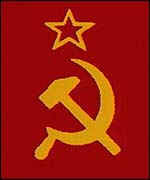





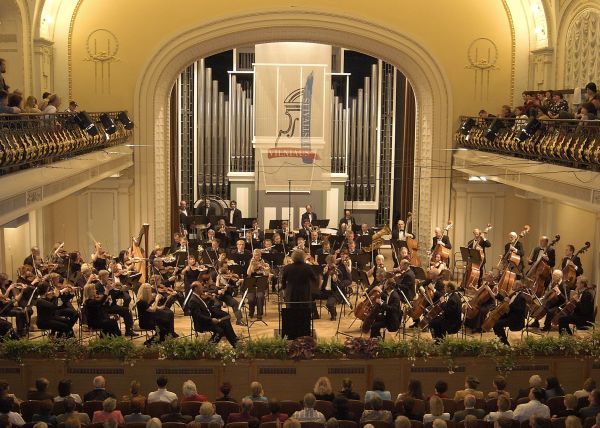

 Lithuania has become a leading medical tourism destination for people from countries around the world
Lithuania has become a leading medical tourism destination for people from countries around the world














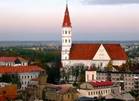


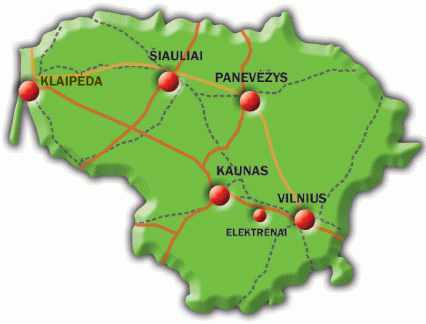


 Valdas Adamkus.
Valdas Adamkus.













.jpg)



